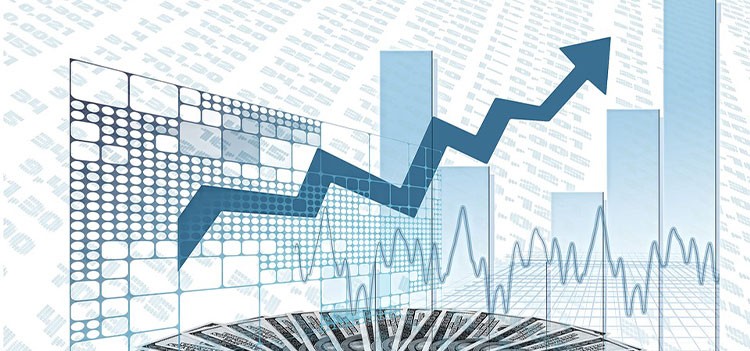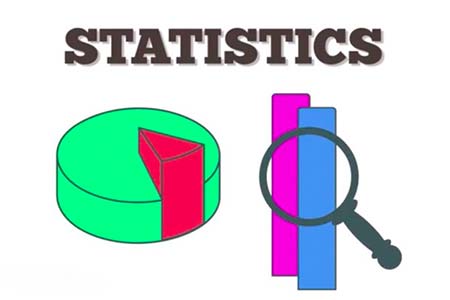A brief Introduction to Statistics
Statistics are the set of mathematical equations that we use to analyse the things in the real- world. The statistics keeps us informed about the things happening in the world around us. In the era of digital world and information, statistics plays a major role in giving us the exact problems and proper solutions for the same. Statistics has its application in every sector of the economy. To determine the exact data of relevant fields, the statisticians use their techniques to generate accurate results that are beneficial for various policy making decisions and business development opportunities.
Career Scope and Job roles available in the field of statistics
The M.Sc Statistics students are largely hired across various organisations. It may be IT, manufacturing, service, factories, government agencies and the list goes on. There are many job roles available for M.Sc Statistics students in today’s context. The list below mentions a few important job profiles in the field of statistics.
Actuarial Analyst
The actuarial analyst job is best suited for the candidates who have strong mathematical ability and excellent analytical skills. The actuarial analysts should be good at problem solving and enjoy analysing the data.
Role of an Actuarial Analyst
The actuarial analysts will be using statistical formulas and techniques to assess the risk. They are usually hired in insurance companies across the world. The main job of the actuarial analyst is to calculate the premium that is to be paid for any insurance according to the age and health condition of the customer. He/she is responsible to determine the premium amount for the policies according to demographics of local areas.
Types of Actuarial Analysts
As an actuarial analyst the professionals will specialise in following areas like:
- Finance
- General insurance
- Health & Care
- Pensions and other employment benefits
- Savings and investments
- Software development
Responsibilities of an Actuarial Analysts
As an actuarial analyst, one is required to:
- Understand and use complex mathematical formulas, particularly in the areas of advanced statistics and modelling
- Use spreadsheets or any other specialist softwares to complete data analysis tasks
- Extend technical support to the team of actuaries, to produce statistical reports and analysis
- Write reports on the computations with results and findings and convert the reports into readable format so that a layman can understand
Data Analyst
The data analyst job is best suited for the individuals who are highly analytical and have strong mathematical skills.
Role of Data Analyst
Data analysts are in high-demand across all the sectors such as finance, consulting, manufacturing, pharmaceuticals, government and education. They should have the ability to pay attention to detail, communicate well and also be highly organised. They are not only responsible to read data but also be able to provide insight and analysis through clear visual, written and verbal communication.
Types of Data Analysts
As a data analyst one is responsible to work in broad range of areas such as:
- Business intelligence
- Data assurance
- Data quality
- Finance
- Higher education
- Marketing
- Sales
- IT Services
Responsibilities
As a data analyst one has to perform the duties such as:
- Developing records management processes and policies
- Identifying areas to increase efficiency and automation of processes
- Setting up and maintenance of automated data processes
- Identifying, evaluating and implementation of external services and tools to support data
- Producing and tracking key performance indicators
- Developing and supporting of reporting processes
- Designing and carrying out surveys to analyse survey data
- Manipulating, analysing and interpretation of complex data sets relating to organisation’s businesses
Data Scientists
Roles of Data Scientists
Data Scientists are responsible for turning raw data into meaningful information that the organisations can use to improve their businesses. Today, the organisations are increasingly using and collecting larger amounts of data to analyse the consumer behaviour in their everyday operations. From predicting what the people will buy to tackling plastic pollution, the job of the data scientist is to find the consumer patterns and help to solve the problems faced by businesses in innovative and imaginative ways.
Types of Data Scientists
As a data scientist one will work across different areas like:
- Finance
- Academia
- Scientific Research
- Health
- Retail
- Information technology
- Government
- E-Commerce
Responsibilities of the Data Scientists
As a data scientist one needs to:
- Work closely with the businesses to identify issues and use data to propose solutions for effective decision making
- Build algorithms and design experiments to merge, manage, interrogate and extract data to supply tailored reports to colleagues, customers or a wider organisation
- Use machine learning tools and statistical techniques to produce solutions to problems
- Test data mining models to select the most appropriate ones for use on a project
- Maintain a clear and coherent communication, both verbal and written to understand data needs and report results
- Assess the effectiveness of data sources and data gathering techniques and improve data collection methods
- Conduct research and develop prototypes and proof of concepts
Financial Risk Analyst
Roles of a Financial Risk Analyst
Financial risk analysts identify and analyse the areas of potential risk threatening the assets, earning capacity or success of organisations in the industrial, commercial or public sector. As a financial risk analyst, one will be responsible for predicting change and future trends as well as forecasting cost of the organisation
Types of Financial Risk Analysts
As a financial risk analyst, one will be working in different areas like:
- Credit Risk Specialists
- Market Risk Specialists
- Operational Risk Analysts
- Regulatory Risk Analysts
Responsibilities of the Financial Risk Analysts
As a financial risk analyst, one is needed to:
- Make recommendations to reduce or control risk, which may involve an insurance company
- Work with traders to calculate the risk associated with specific transactions
- Forecast and monitor market trends
- Consider proposed business decisions
- Conduct research to assess the severity of the risk
- Conduct statistical analysis to evaluate the risk, using software such as SPSS and SAS/STAT
- Present innovative ideas through reports and presentations, outline findings and make recommendations for improvements
- Carry out qualitative and quantitative analysis
- Protect the organisation’s assets and public image
Final Lines
In the era of the digital world everything is based on the data generated and data accumulated. The advancements in the digital technologies has resulted in accumulation of humongous data. The organisations require specialised professionals to interpret this data and give it a shape. So, that the data can be used effectively to increase business opportunities. The M.Sc Statistics students are the skilled professionals who have the skill and knowledge to study this data and give a proper meaning to it. The students who are interested in analysing the data and if they feel they have the capacity and patience to interpret the data can choose to join M.Sc Statistics course and can land in high paying jobs in the markets.





